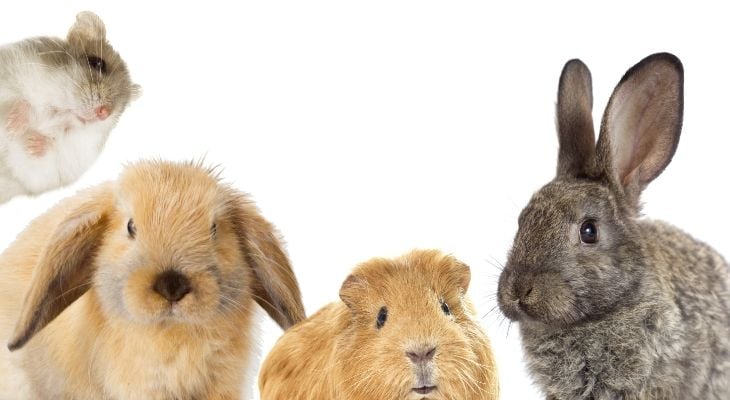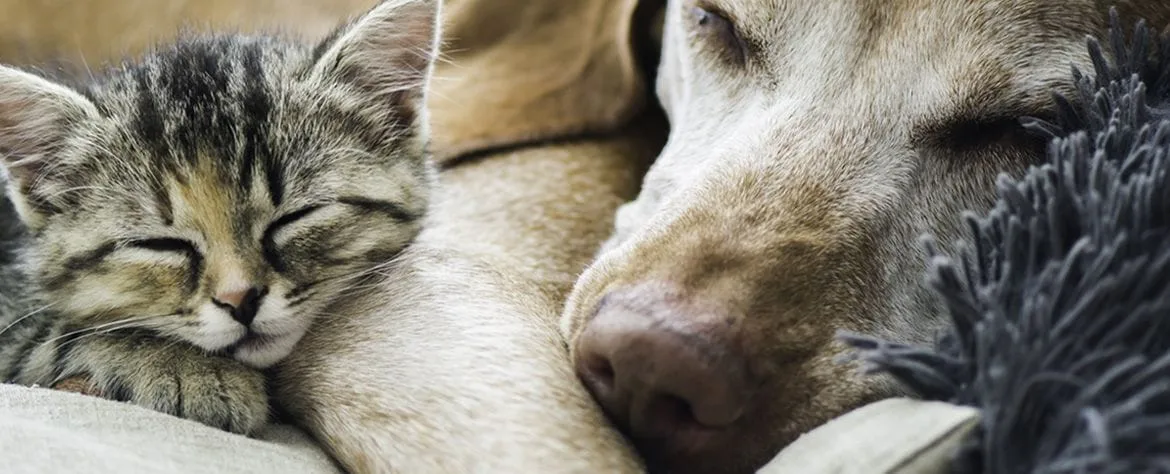When you visit the grocery or pet store, you can find hundreds, if not thousands, of kinds of dog and cat foods. The advertisements and marketing materials for each claims their food is the best. How can you decide what food to feed to your pet? Dedicated pet owners will attempt to read labels to help
Read more

Although small mammals are cute and tiny, they can be a big responsibility. If you’re interested in owning a chinchilla, ferret, hamster, hedgehogs, gerbils, guinea pigs, rabbits, rats, and other small mammals, it’s important to learn how to properly care for each of these furry creatures before bringing them home with you.
Consider what size, temperament, and activity level are right for your household so you can choose the option that best matches your lifestyle. Are you looking for an animal that will take kindly to being petted and interact with you? Rabbits or guinea pigs are pets that enjoy cuddling once they’re gotten used to you. Be sure to choose a small mammal that has what you’re looking for and you’ll love having it around. Check out the articles below to learn more about the general care of each of these animals.
-
Reading Pet Food Labels
Category: Newsletter Library, Nutrition & Food
-
When Your Pet's Food Is Recalled
Category: Newsletter Library, Nutrition & Food
According to government regulatory agencies, there are three types of pet food recalls that can be issued. Recalls can be conducted by a company or brand, by request from the regulatory agencies, or by order from the government agency. When your pet's food has been recalled, you'll want to contact your
Read more -
What is in Your Pets' Food?
Category: Newsletter Library, Nutrition & Food
Every day we are besieged with pet food advertisements, in magazines, newspapers and on television. Tens, if not hundreds, of millions of dollars are spent per year trying to convince us that their pet food is the best. Who to believe? What is really in pet food? Is the pet food label helpful? A Chapman
Read more -
Why Your Guinea Pig Needs Vitamin C But Your Dog Doesn't
Category: Newsletter Library, Nutrition & Food
We all need to eat a complete and balanced diet. We feed our dogs and cats food developed by companies that study their nutritional needs, but if you study the list of ingredients, Vitamin C is not listed. When we prepare our own meals, we have to make sure we consume a source of Vitamin C such as orange
Read more -
Pet Food Allergies? The Rules for a Pet Food Trial Have Changed
Category: Newsletter Library, Nutrition & Food
Food allergies are common in dogs and cats. It usually manifests as itchy skin, chronic vomiting, or diarrhea. If you suspect that your pet may have a food allergy, you will need to investigate by performing a food trial. There are no intradermal skin tests or blood tests that are valid for determining
Read more -
Obesity in Dogs
Category: Newsletter Library, Nutrition & Food
Obesity is on the rise, and not just for humans. Dogs are increasingly overweight and even obese. In the United States, an estimated 43 million dogs are overweight or obese - that’s over half of all dogs! And it is not just dogs in the United States that need to lose a few pounds - canine obesity is
Read more -
Foods to Avoid for Pets on Low Sodium Diets
Category: Newsletter Library, Nutrition & Food
Pets afflicted with heart failure or high blood pressure should not be fed salty foods, as they cause fluid to be retained in the body and make it harder for the heart to work. They also can lead to fluid developing in the lungs (pulmonary edema). Most commercial dog foods have a decent level of sodium,
Read more -
Food Allergies
Category: Newsletter Library, Nutrition & Food
Food allergies occasionally occur in dogs and cats. They usually manifest themselves as itchy skin, ear infections, chronic vomiting, or diarrhea. If you suspect that your pet may have a food allergy, you can investigate by performing a food trial. There are three rules for a food trial: 1. Pick a new
Read more -
Fitting Fiber into Fido's Food Bowl
Category: Newsletter Library, Nutrition & Food
Fiber is important because it helps dogs feel full, supports natural, healthy digestion and aids in moving material through their digestive tract. Is there fiber in your pet's food bowl with each meal? Does your pet need fiber, or more fiber? Grains like wheat, barley, corn and rice contribute small
Read more -
Spring Hazards
Category: Newsletter Library, Seasonal Topics
Everyone looks forward to spring with its fresh air, colorful flowers, and sense of renewal. But there are many hazards associated with this season. We should always be on guard when it comes to our pets and potential dangers. Many areas of the country have a problem with snails; people often put snail
Read more -
Six Tips for Keeping Your Dog Cool
Category: Newsletter Library, Seasonal Topics
Many areas of the world are seeing record high temperatures, which makes it even more important to ensure that your pets are kept cool. Veterinarians commonly see dogs with heat stroke, but most of these cases could easily have been averted with some easy precautions. The following six tips will help
Read more -
Preparing Your Pet for the Winter
Category: Newsletter Library, Seasonal Topics
This winter, while you curl up next to the fire with a cozy blanket, a good book and some hot chocolate, don't forget about your pet! Winter can play it rough with your pet and you have to look out for his health and well-being. Here are some preparations you should make to help your pet prepare for
Read more -
Prepare Your Pets for Halloween
Category: Newsletter Library, Seasonal Topics
Halloween is right around the corner! Whether you are planning on participating in the spookiest night of the year —Halloween — it is likely that people in your neighborhood are. This means that the streets will be filled with loud noises, new faces and all manner of things that can stress out your
Read more -
Keeping Pets Cool This Summer
Category: Newsletter Library, Seasonal Topics
For humans, that means better beach days and much needed vacations, but for your animals, the warmer weather can be dangerous. Even the healthiest pets can suffer from dehydration and heat exhaustion, so it’s important to take proper precautions and protect your pets from overheating. By following
Read more -
Holiday Hazards for Pets
Category: Newsletter Library, Seasonal Topics
The holidays are fun, even for pets, but the season brings added danger for animal companions. Learn to recognize and manage holiday hazards to keep your pet safe during the festivities. Tinsel Tinsel is attractive, especially to cats. Tinsel is not toxic but consuming tinsel can cause serious harm
Read more -
New Uses for Animal DNA
Category: Newsletter Library, Newsletter Archive, Unbelievable Pets
Advances in science have enabled the decoding of several animals' DNA. Knowing the genome of a species has enabled medical professionals to detect some diseases that have a genetic basis. But it also has other uses, even in the criminal justice system. The Veterinary Genetics Laboratory Forensic Unit
Read more

Contact Us
We look forward to hearing from you
Location
Find us on the map
Office Hours
Our Regular Schedule
Office Hours
Monday:
8:00 am-5:30 pm
Tuesday:
8:00 am-5:30 pm
Wednesday:
8:00 am-5:30 pm
Thursday:
8:00 am-12:00 pm
Friday:
8:00 am-5:30 pm
Saturday:
8:00 am-12:00 pm
Sunday:
Closed
